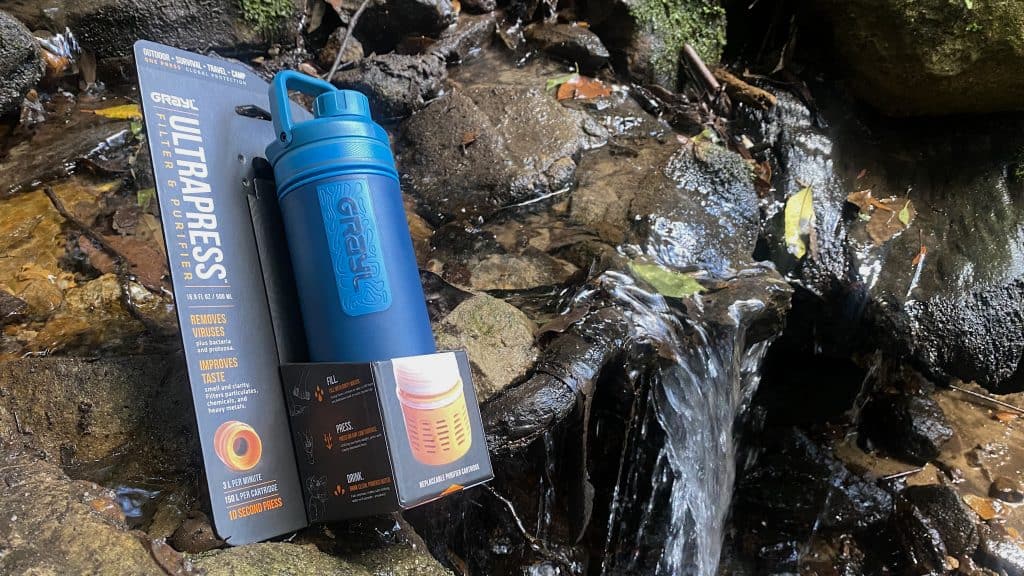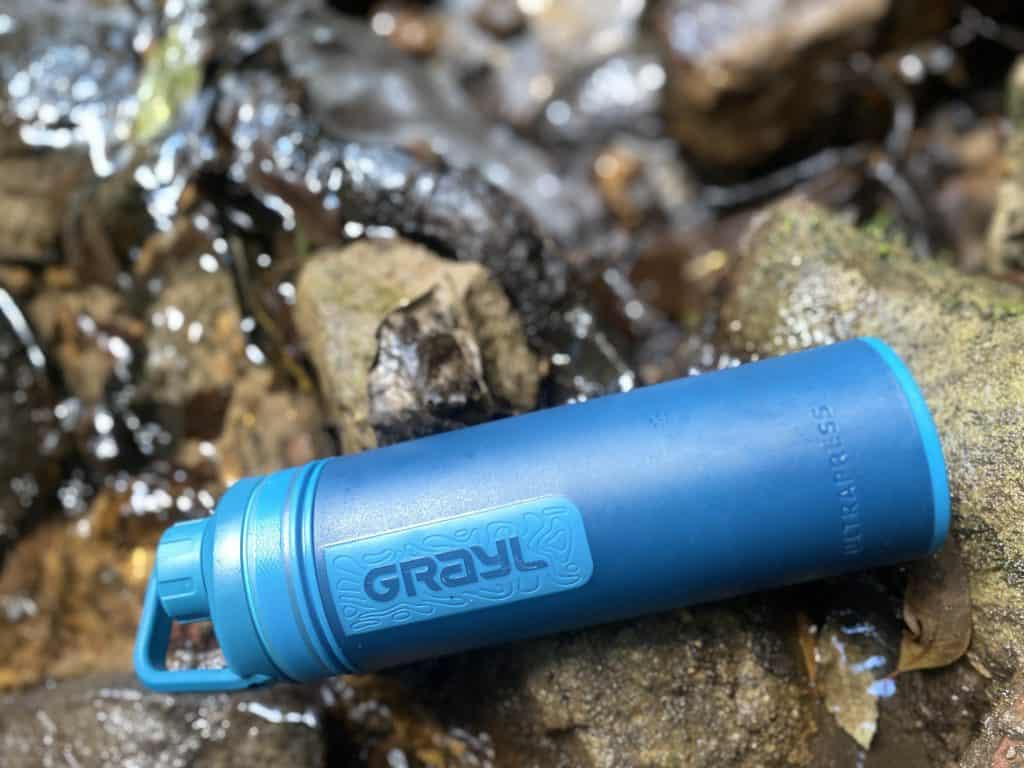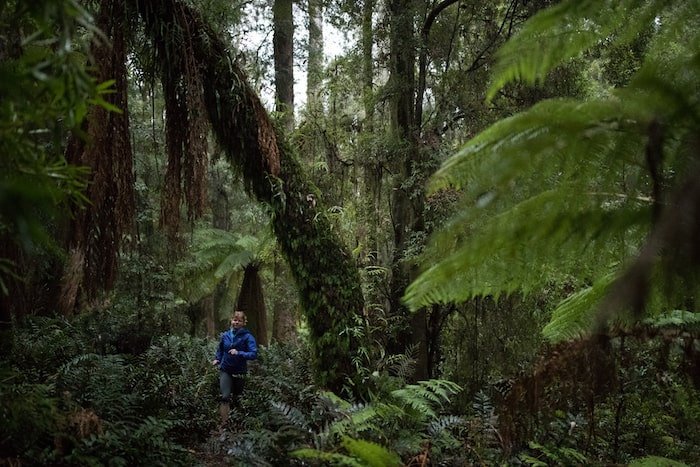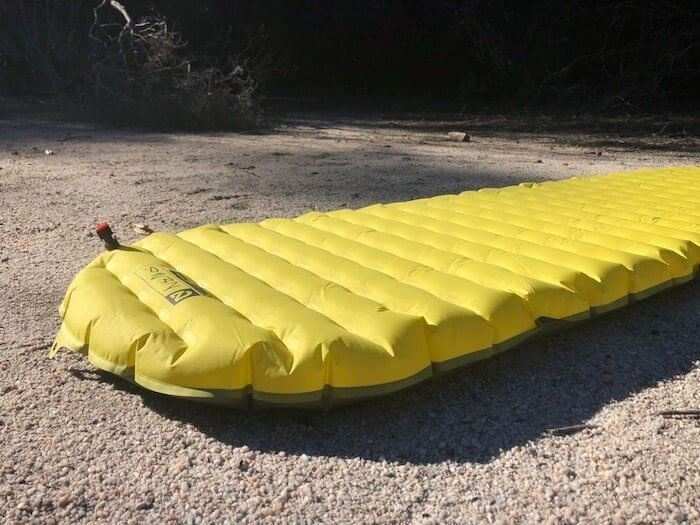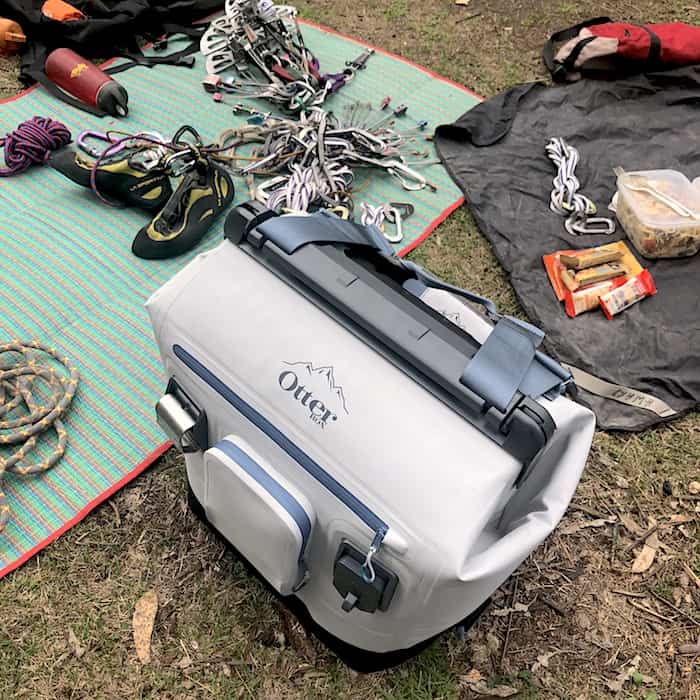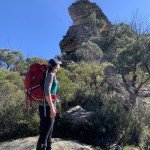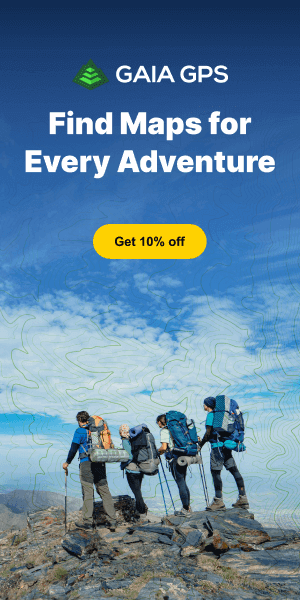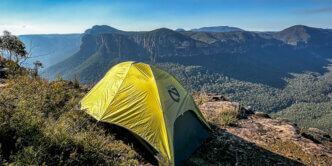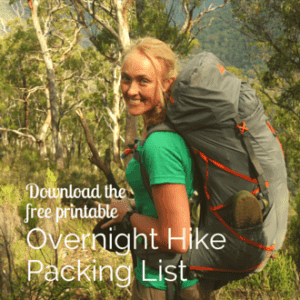In the world of purifying drinking water, there are many different ways of performing the bushwalker’s miracle of water into w… well, water… and making it safe to drink. The hiker’s alchemy of being able to reduce your backpack weight by collecting water along the way and not end up with some form of gastro is a great revelation – it’s also easy to do. I have been using a Grayl UltraPress water purification filter for a couple of months before writing this gear review and here’s what I found:
The most common ways of treating drinking water for bushwalking and hiking are:
- Tablets – eg. Micropur
- Drops – eg. Aquamira
- Filters – Like this Grayl one or Sawyer Squeeze, MSR, Platypus or LifeStraw
- Boiling
- UV Light – eg. Steripen
What to look for in water treatment
Not all methods are equal OR do the same job(s). There are four main bug types that drinking water treatments can deal with:
- Bacteria
- Viruses
- Protozoa
- Microparticles
Doing your research to work out what particular bugs are more of an issue where you plan on adventuring, may help you make a wise choice. Some filters or methods only deal with bacteria and protozoa, whilst others may only do viruses. The devil is in the detail… and in the spits at 2 am in a tent… in the rain… and, well, you get the idea.
What else?
The old triad of cost vs. bulk vs. weight is always going to be a balancing act for us folk who like to carry everything on our backs. If you’re a car-camper, day-hiker or slush-fund-recipient, then some of these decisions won’t be as important.
The thing that really struck me by the Grayl UltraPress purifier is not only how easy it is to use but that it deals with all 4 of the nasties that could be in water. Simply scoop up water, push the filter down (it takes a bit of effort) and bingo – 500 ml of water that’s good to drink. No tricksy attaching hoses, rigging things up to hang or waiting 30 minutes for it to work.
It’s also the kind of simple system that I’d want to take travelling anywhere I didn’t trust the water from a tap.
The Pros
- Simple
- Instant
- Slimline Design
- Deals with all 4 of the water gremlins + others = virus, bacteria, protozoa, microplastic, silt, sediment, chemicals, heavy metals + odour
The Cons
The main downside for me is the weight of the bottle at 354 g (they also do an Ultralight at 309 g).
The filters will last for 350 x 500 ml presses and you will need to dispose of the filter cartridge (80 g). Grayl are in the process of setting up a trade-in service with TerraCycle (as at March 2022), so fingers crossed that doesn’t take too long to happen – I wouldn’t want to see the filters having to go to landfill.
At around $140 AUD, you’ll want to take good care of your filter bottle to get the most out of it. There’s a wee bit of stuff you need to know, like the importance of drying out your filter and storing it (short term – on the track and long term – at home)
Grayl UltraPress Specs
- 500 ml
- 354 grams
- 25 cm x 7.5 cm (fits well in side pockets)
- Lifespan: 300 presses (ie. 150 litres)
- Filter method: ion exchange, ultra powdered activated carbon
- Flow rate: 3 litres per minute
- Removes: 99.99% of viruses, bacteria and protozoa, including rotavirus, hepatitus A, norovirus, giardia, cryptosporidium, E.coli, cholera, salmonella, dysentery. Yech!
- Filters: particulates (sediment, microplastics) pesticides, herbicides, heavy metals, flavour and odour
- Made from BPA-free polypropylene, TPA and ABS food-grade plastic
Buy a Grayl UltraPress from Snowy’s Outdoor.

